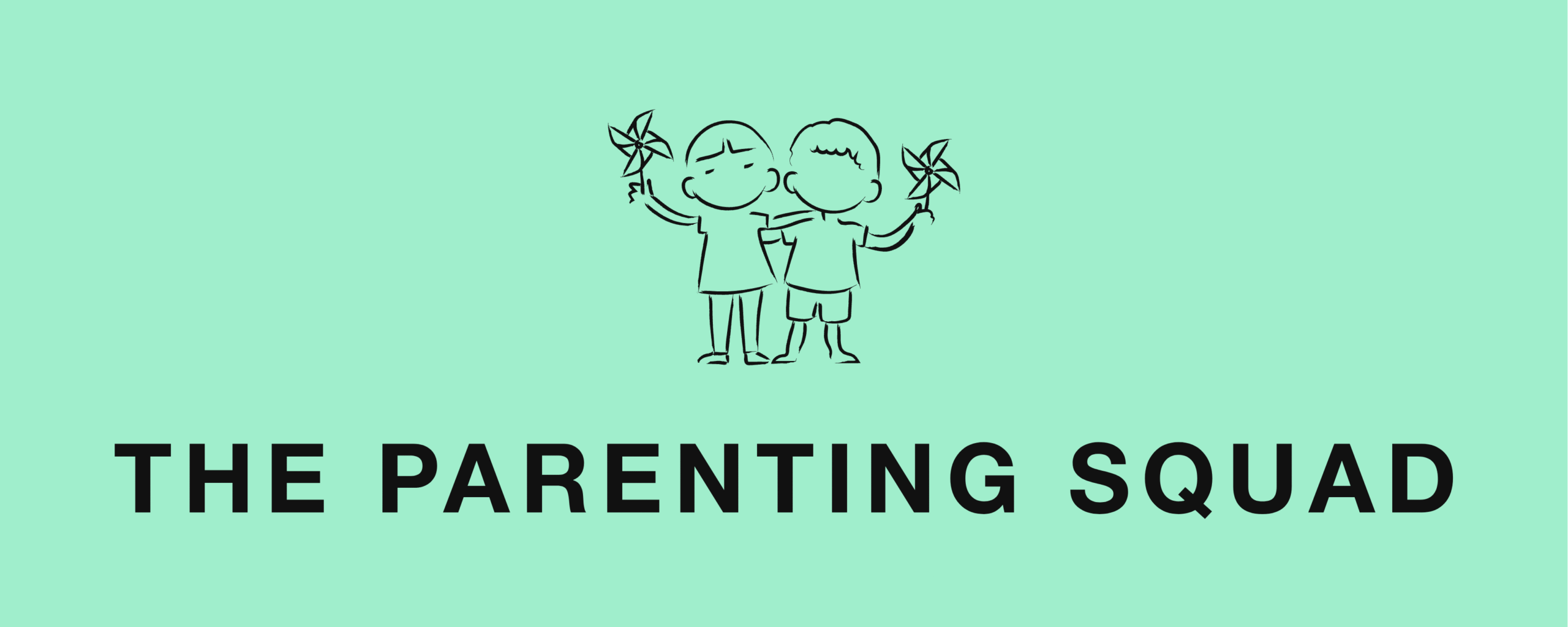Pregnancy Preparation 101: 12 Smart Ways to Get Baby-Ready Without Losing Sleep
Getting ready for your first baby can feel like preparing for the most important exam of your life—except nobody gave you the study guide, and the test date keeps getting closer! One minute you’re glowing with excitement about tiny onesies, and the next you’re lying awake wondering if you’ve forgotten something crucial (spoiler alert: you probably haven’t, but your brain will convince you otherwise at 3 AM).
The truth is, thoughtful preparation can turn those overwhelming “what-if” moments into confident “we’ve got this” feelings. You don’t need to have everything figured out perfectly—nobody does, not even that seemingly organized friend who color-coded her nursery before the second trimester. What you need is a practical roadmap that helps you tackle the essentials without sending your stress levels through the roof.
Consider this your friendly, no-judgment guide to getting baby-ready. We’ll walk you through everything, from prenatal care and nutrition to building your support network and, yes, even packing that infamous hospital bag. These aren’t just boxes to check off a list—they’re stepping stones toward feeling more prepared and excited about the adventure ahead.
Ready to turn pregnancy prep from overwhelming to manageable? Let’s dive into twelve smart strategies that’ll help you welcome your little one with confidence (and maybe even a few hours of sleep still in the bank).
1. Start with Preconception Health: Laying the Groundwork
Before you even see that positive test, your journey to a healthy pregnancy begins. Preconception health is all about setting the stage for a healthy baby and a smooth pregnancy by prioritizing your own health first. This means understanding how your lifestyle, environment, and medical history can impact your reproductive health and making informed choices to optimize your chances of a successful pregnancy.
- Check in with your healthcare provider to review any existing health conditions
- Understand your risk factors and make sure you’re at a healthy weight
- Start a folic acid supplement at least one month before trying to get pregnant to help prevent birth defects
Quick tip: Schedule a preconception checkup to receive personalized advice and ensure you’re on the right track from the very beginning.
2. Know Your Family Health History and Genetic Risks
Your family’s health history is more than just a list of illnesses—it’s a powerful tool for protecting your baby’s health. By sharing information about birth defects, high blood pressure, and other health problems in your family, you help your healthcare provider identify potential genetic risks that could affect your pregnancy. This can lead to genetic counseling to better understand and reduce risks for your developing baby. Include your partner’s family health history too—both sides matter! Knowing your health history helps manage conditions like high blood pressure or diabetes that can impact pregnancy outcomes. The more you know, the better you can support a healthy pregnancy and baby.
- Gather detailed information about birth defects and health problems in your family
- Share your and your partner’s family health history with your healthcare provider
- Consider genetic counseling to understand and reduce risks for your baby
Action step: Write down your family health history and bring it to your next appointment—your future self (and your baby) will thank you.
2. Prioritize Your Prenatal Care Appointments
Staying consistent with your prenatal appointments is one of the smartest things you can do for both yourself and your baby. These visits do more than check vital signs—they lay the foundation for a safe, healthy pregnancy by allowing your healthcare provider to catch concerns early and offer support tailored to your needs. Both you and your provider should work together to optimize your preconception health, including reviewing any existing health conditions or medical conditions that could impact pregnancy. Discuss your body mass index (BMI) to determine if you need to lose weight before pregnancy for the best outcomes. Showing up and staying engaged sets the tone for proactive, informed care from the very beginning.
- Schedule all appointments in your phone with multiple reminders
- Keep a digital folder for ultrasound photos and doctor’s notes
- Stay on top of routine check-ins—these visits track your health and your baby’s development
Pro tip: Add questions as they occur to you—nothing is too small or silly!
3. Get Serious About a Balanced Diet
If you are planning to conceive, start a vitamin supplement with at least 400 micrograms of folic acid daily at least one month before trying. Taking prenatal vitamins, especially those with enough folic acid, is crucial to prevent neural tube defects and support your unborn baby’s growth. Ask your provider how much folic acid you need; some women may need higher doses.* Focus on balanced meals—eating well before and during pregnancy is crucial for fertility and overall pregnancy health. Prioritize folic acid, iron, calcium, and variety from nutrient-dense foods.
- Know the “no-go” foods: sushi, soft cheeses, deli meat,s and alcohol
- Consider working with a nutritionist if you have food aversions or special health needs
Tip: Craving sushi? Try cooked or veggie rolls as a safe alternative.
4. Make Lifestyle Changes for a Healthier Pregnancy
Small changes now can make a big difference for you and your baby. Start by aiming for a healthy weight and nourishing your body with a balanced diet full of fruits, vegetables, and whole grains—these healthy food choices provide the nutrients your baby needs to grow. Being physically active (with your healthcare provider’s okay) can boost your overall health and prevent pregnancy complications. Just as important: avoid harmful substances like alcohol, tobacco, and certain medications that can increase the risk of birth defects and other health problems. Don’t underestimate the power of managing stress and getting enough sleep either—both are key for your well-being and your baby’s. By making these lifestyle changes, you’re setting the stage for a healthy pregnancy, baby, and a smoother journey.
Motivation: Every positive change you make now is a gift to your future self and your little one.
5. Prepare Mentally and Manage Stress Emotionally
Pregnancy brings more than just physical changes—it’s also a journey of the heart and mind. As you move through each trimester, emotional ups and downs are a standard part of the experience, and preparing mentally is just as important as taking care of your physical well-being. Acknowledging your emotions, whether excitement, nervousness, or uncertainty, can help you navigate these changes with self-compassion. By prioritizing your mental health now, you’re laying the foundation for resilience during pregnancy and for your parenting journey.
- Practice prenatal yoga or gentle meditation for stress relief
- Journal your thoughts, dreams, and even your worries—it’s therapeutic
- Share your feelings with friends, family, or a support group
- Seek professional support if you’re feeling overwhelmed
Resource: Check out “Mindful Mama” by Lori Bregman for practical mindfulness tips.
6. Review Your Finances
Financial planning is a big part of preparing for a baby. As you look forward to the joys of parenthood, it’s smart to take a close look at your financial picture. Babies bring plenty of excitement but also new costs—some planned and some that will surprise you. By taking steps now to organize your expenses, savings, and insurance, you’ll help your family feel secure and supported when your little one arrives. Thoughtful planning means you’ll have more time and energy to enjoy your growing family rather than worrying about bills or last-minute costs.
- Research real first-year costs: diapers, formula, gear, childcare
- Use budgeting apps like Mint or YNAB to track spending and savings
- Open a separate baby savings account
- Review what your insurance covers, from prenatal visits to adding your newborn
Tip: Discuss finances with other parents to set realistic expectations.
7. Plan Parental Leave Strategically
Taking time off for your new arrival is a big milestone, but it can also be a source of stress if you haven’t mapped out the details. Planning your parental leave in advance means you can focus on bonding with your baby and recovering, without scrambling over paperwork, policies or missed emails at the last minute. Laying the groundwork well before your due date can bring peace of mind and allow you to be present for your growing family.
- Review your company’s handbook and talk to HR early
- Get familiar with your state and federal family leave benefits
- Communicate your plans clearly and with advance notice
- Ask about gradual return to work or flexible scheduling if possible
Don’t forget: Consider state disability or paid leave programs for additional support.
8. Prepare the Nursery Like a Pro
Creating a nursery is more than picking out cute decorations—it’s about building a space that supports your baby’s safety and your comfort. Thoughtful planning now means fewer adjustments later, and a well-prepared space can ease the early days of parenthood. Consider how you’ll use the room for late-night feedings, diaper changes, and quiet bonding time. Prioritize practical choices so the space works for you and your growing child, so you can focus on making memories rather than fixing problems.
- Focus on function and safety over Pinterest perfection
- Invest in multi-purpose furniture that grows with your child
- Baby proof early—anchor furniture and cover outlets
- Keep the crib away from windows, cords, and vents
Remember: Your baby doesn’t care about designer decor.
10. Assemble the Ultimate Hospital Bag
Having your hospital bag ready ahead of time takes a significant amount of stress off your plate. By having everything you need by the door, you’ll avoid the last-minute rush and can focus on the excitement and anticipation instead. The hospital stay can be unpredictable, so thoughtful packing will help you feel more at ease and confident. This simple act of preparation means when labor starts, you’ll have what you need for yourself and your new arrival right at hand.
- Pack cozy clothes, slippers, and a going-home outfit
- Bring snacks, entertainment, and a long phone charger
- For baby: two sizes of going-home outfits, a blanket, and an installed car seat
- Pack around 36 weeks and keep the bag handy
Pro tip: Have a small “early labor” bag ready, separate from your main bag.
11. Practice Self-Care Now
Taking care of yourself during pregnancy isn’t a luxury; it’s a vital foundation for a healthy pregnancy and a positive postpartum experience. As your body changes and emotions fluctuate, self-care offers stability and relief. Embracing these nurturing habits now helps manage stress, replenish your energy, and encourages a deeper connection to yourself and your growing baby. When you take time to recharge, you’re better equipped to handle the joys and demands of impending parenthood.
- Book a prenatal massage, take naps, or get lost in a good book
- Maintain friendships and hobbies that bring you joy
- Try meditation or therapy for emotional well-being
- Sleep, sleep, and sleep some more—guilt-free
Mindset: Fill your cup first to care for your baby better later.
12. Build Your Support Network for a Healthy Pregnancy
While preparing for your baby’s arrival, surrounding yourself with a solid support system is one of the most valuable things you can do. Having a child is both joyful and challenging; having trusted people ready to offer practical help or emotional comfort can make the tough days easier and the good days better. Reach out now to friends, family, and trusted professionals. By nurturing these relationships early, you’ll establish a caring community that’ll be ready to celebrate, encourage, and lend a hand when you need it most.
- List people who can help: for meals, errands, or emotional support* Build a “help chain” for different types of help
- Find professionals—lactation consultants, doulas, or cleaning services
- Join online groups or local parent meetups for extra support
App to try: Peanut (for connecting with other expecting parents).
Your Baby-Ready Journey Starts Now
Breathe, expecting parents—you’re doing better than you think! This list isn’t meant to overwhelm or give you a never-ending to-do list to keep you up at night. Instead, see it as a gentle guide you can tailor to your own situation and needs.
Preparing for a baby isn’t about being perfect; it’s about building confidence, knowledge, and support systems so you can enjoy the wild ride of parenthood. Some days you’ll feel prepared and others you’ll wonder what you missed. Both are normal and part of the journey.
The most important thing is to be kind to yourself and trust you’ll be the parent your baby needs. Your love, presence, and willingness to learn are what matter most, not having all the answers from day one.
Ready to get baby-prepared with confidence? Take the first step today and start your pregnancy preparation journey with these smart strategies!






